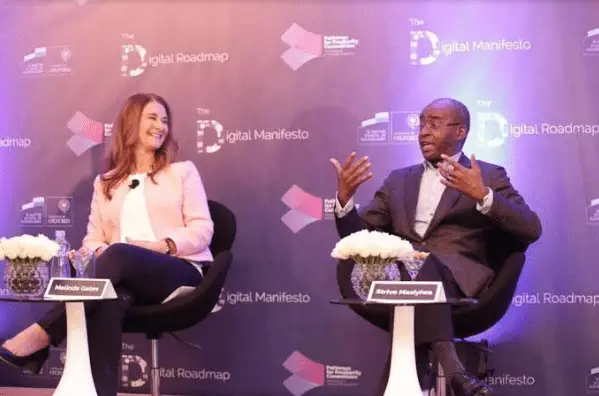A Digital Manifesto, a 10-step guide for developing countries to get ahead in the digital age was launched by Pathways for Prosperity Commission on Technology and Inclusive Development.
The guide was launched in Nairobi last week by the Commission’s co-chairs Melinda Gates, of the Bill & Melinda Gates Foundation, and Strive Masiywa, founder of pan-African telecommunications, technology and renewable energy group, Econet.
“Today, huge gender gaps in digital access are the norm in developing countries. If we invest in closing those gaps, women and girls can start to meet their untapped potential, building economies that are not only more equal but also more dynamic and ultimately more prosperous,” said Ms Gates.
Mr Masiywa said that digital technologies offer powerful tools to help grow businesses and nations by helping entrepreneurs access to markets and giving governments’ innovative ways of delivering better services.
“However, without visionary policy planning and 21st-century skills training for virtually everyone, these same technologies over time could lead to job losses and further financial exclusion of the poorest in our societies.” Mr Masiywa added
Also Read: What potential lies within Tanzania’s digital economy?
The digital manifesto gives steps for digital transformation including designing a digital strategy, securing citizens’ data, empowering citizens for the digital age, providing a social safety net and building foundational digital systems.
According to the manifesto, failure to adapt to the digital age could widen the gap between rich and poor countries as well as fueling inequalities within them.
Africa’s labour force had been projected to grow by 285 million people from 2010 to 2030 which is more than all the manufacturing jobs in China and India. Ensuring that there will be opportunities for the 285 million people will be key to economic growth.
The report said that new digital technologies will come with opportunities for low and middle-income countries to diversify their economies, create new jobs, transform agriculture and improve health and education.
A digital economy tool kit has also been developed by the commission to address inequalities and future employment needs.
The kit has been already been piloted in Ethiopia, South Africa and Mongolia. It provides a framework for countries to get digitally ready through holistic growth strategies that tackle digital technologies across the economy.
Despite developing countries embracing digital technologies, the rate of adoption still remains slow.
Also Read: Africa digital finance research gets Bill and Melinda Gates funding
